 A new federal study says climate change in the Maritimes may reduce growth of softwood trees while hardwoods increase. Elsewhere, NRCan researchers model various mitigation strategies to determine how forests and wood products can best reduce emissions to the atmosphere.
A new federal study says climate change in the Maritimes may reduce growth of softwood trees while hardwoods increase. Elsewhere, NRCan researchers model various mitigation strategies to determine how forests and wood products can best reduce emissions to the atmosphere.
In other forestry news: the bedeviled McBride Community Forest has a new manager; Bella Coola’s Community Forest needs more and better communication; and a Vancouver Island old-growth preservation tour is criticized for “mushy and malleable definitions that lead to assumptions that are just plain wrong“.
Bloomberg reports a welcome compromise on wildfires as Democrats and Republicans come up with a plan. In the High Country News (Colorado), a long and short version how the budget-starved US Forest Service gives jobs to the lowest bidder instead of local communities.
Finally, in Business News, Stephen Harper blasts Canada’s approach to NAFTA and says the Liberals bungled softwood lumber. The Liberals say there was never a softwood settlement on the table.
–Kelly McCloskey, Tree Frog Forestry News
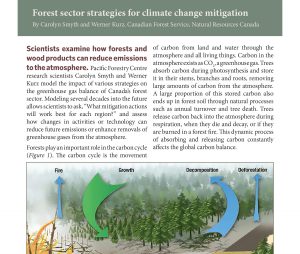 Scientists examine how forests and wood products can reduce emissions to the atmosphere. Pacific Forestry Centre research scientists Carolyn Smyth and Werner Kurz model the impact of various strategies on the greenhouse gas balance of Canada’s forest sector. Modeling several decades into the future allows scientists to ask, “What mitigation actions will work best for each region?” and assess how changes in activities or technology can reduce future emissions or enhance removals of greenhouse gases from the atmosphere. Forests play an important role in the carbon cycle. The carbon cycle is the movement of carbon from land and water through the atmosphere and all living things. …This dynamic process of absorbing and releasing carbon constantly affects the global carbon balance.
Scientists examine how forests and wood products can reduce emissions to the atmosphere. Pacific Forestry Centre research scientists Carolyn Smyth and Werner Kurz model the impact of various strategies on the greenhouse gas balance of Canada’s forest sector. Modeling several decades into the future allows scientists to ask, “What mitigation actions will work best for each region?” and assess how changes in activities or technology can reduce future emissions or enhance removals of greenhouse gases from the atmosphere. Forests play an important role in the carbon cycle. The carbon cycle is the movement of carbon from land and water through the atmosphere and all living things. …This dynamic process of absorbing and releasing carbon constantly affects the global carbon balance.












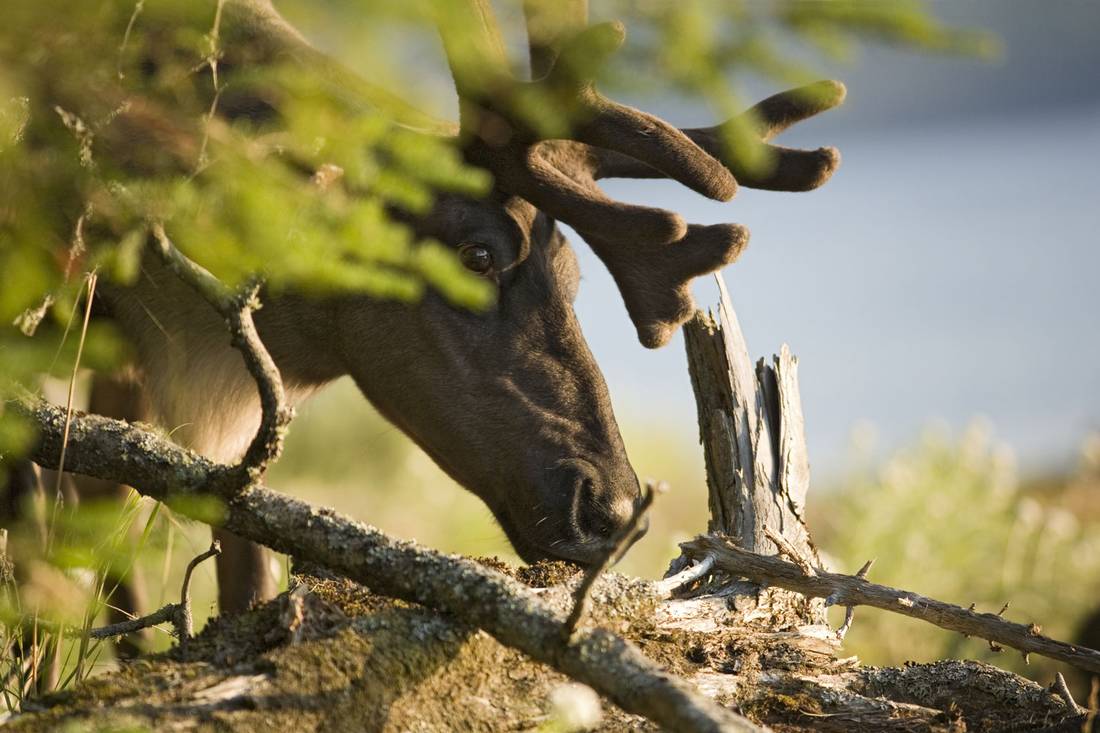
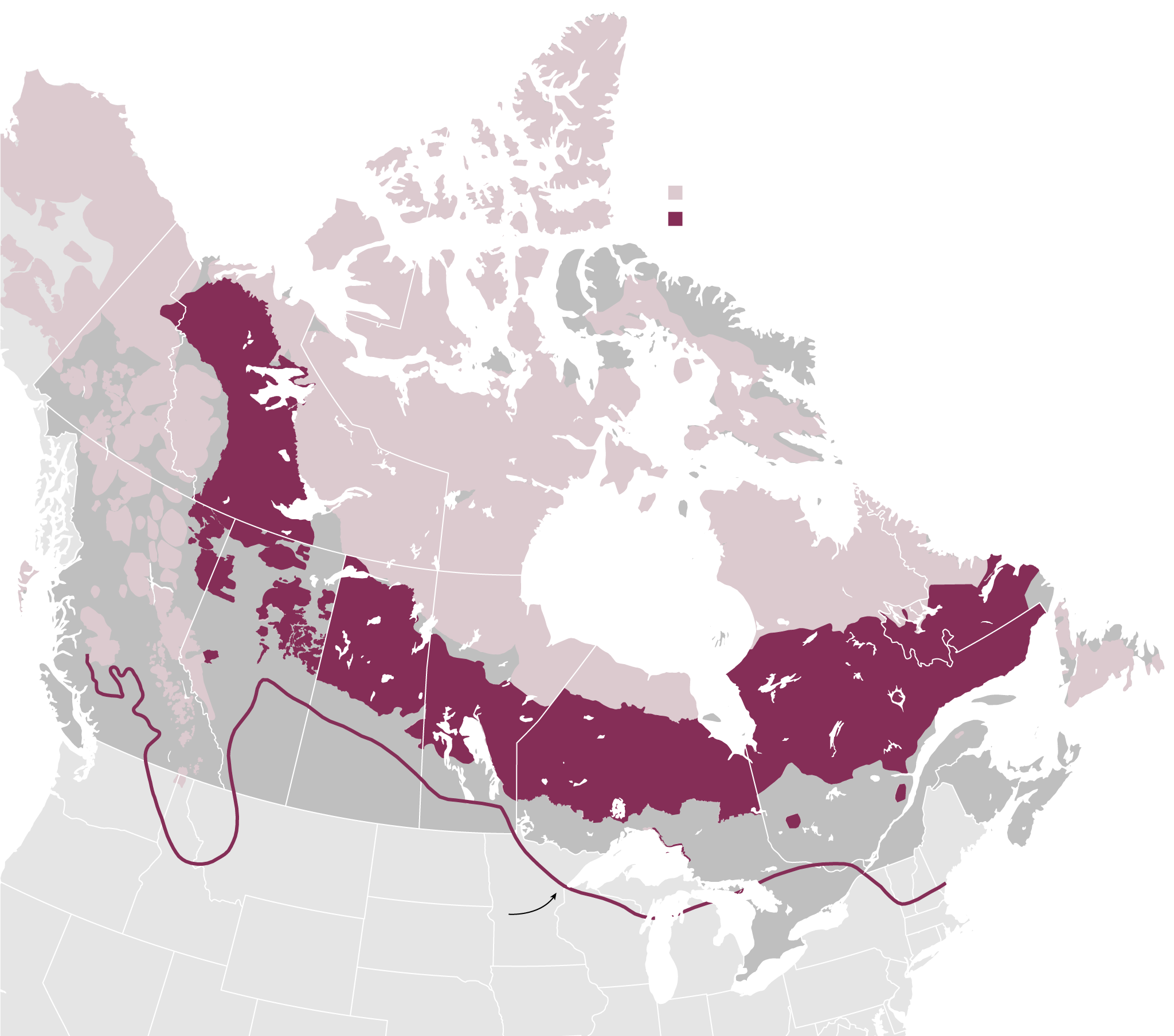







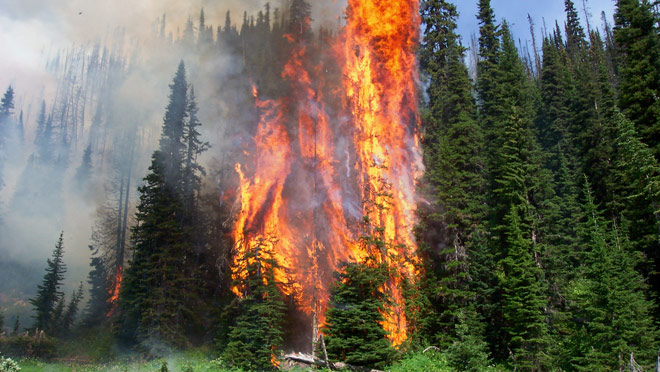






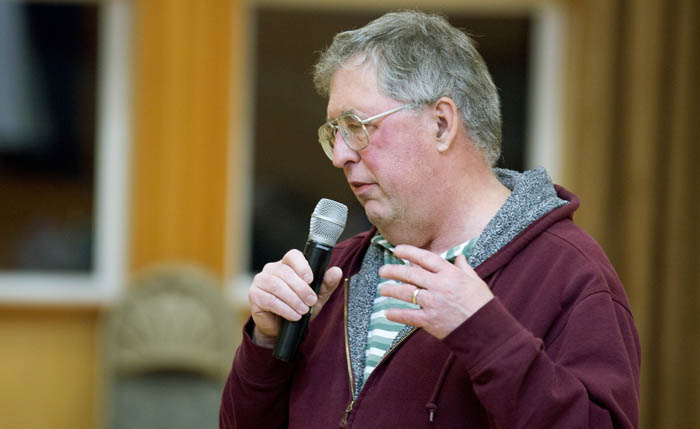



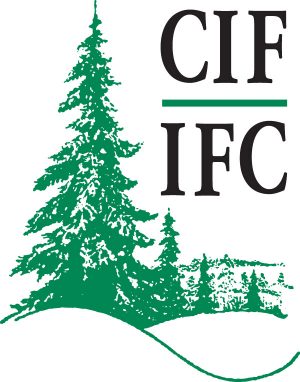 The Canadian Institute of Forestry delivered the first Teacher’s Tour in northwestern Ontario recently. The tour was for 20 teachers in the Keewatin-Patricia District School Board to participate in classroom sessions led by forestry professionals, to clear up misconceptions about the industry. Domtar hosted the group and provided a facility tour, while the Dryden Forest Management Company led the group in a field tour of active harvest operations, providing hands-on activities for the group of teachers. “We are so excited to be bringing this program to life in Northwestern Ontario,” says Dianne Loewen, Canadian Institute of Forestry’s Director for the Lake of the Woods Section.
The Canadian Institute of Forestry delivered the first Teacher’s Tour in northwestern Ontario recently. The tour was for 20 teachers in the Keewatin-Patricia District School Board to participate in classroom sessions led by forestry professionals, to clear up misconceptions about the industry. Domtar hosted the group and provided a facility tour, while the Dryden Forest Management Company led the group in a field tour of active harvest operations, providing hands-on activities for the group of teachers. “We are so excited to be bringing this program to life in Northwestern Ontario,” says Dianne Loewen, Canadian Institute of Forestry’s Director for the Lake of the Woods Section.



